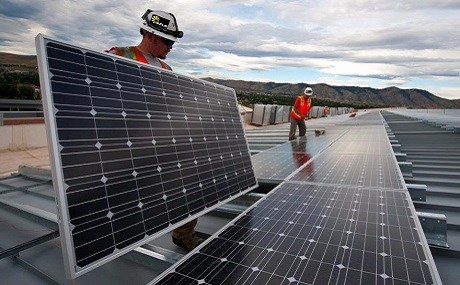A Canadian company is in the Kurdistan Region to work on two projects using solar panels to generate electricity for the province of Sulaimani.
The projects aim to initially light up the main streets in the city and then, if successful, be used to supply electricity to schools, hospitals, mosques, and government buildings.
“The devices will turn on and off automatically and they come with a three-year warranty,” Shan Abdullah, a shareholder in Sunlid Solar, told Rudaw.
“They have the capacity of 750 watts to produce lighting. We are waiting for the approval of the government so that we start our projects.”
The Kurdistan Region suffers from regular power-cuts and residents rely on private generators to complement the average eight hours per day of electricity that the government provides.
The head of Sulaimani provincial council has met with company officials to finalize the paperwork.
“We need to hold a provincial council meeting with officials from the electricity department. We will start the projects if they reduce the costs of the government,” said Azad Hamawandi, head of Sulaimani provincial council.
Some Kurdish engineers have shares in the projects, Rudaw has learned.
The Kurdistan Region currently generates 3,500 megawatts of electricity, which equals eight hours of electricity for each household in the Region. The government needs to produce 6,000 megawatts to provide electricity for 24 hours.
“The government should no longer generate electricity or install solar panels by itself. Rather, it should only issue guidance and instructions for investors wanting to invest in the electricity sector,” said Sirwan Mohammed, spokesperson for the Sulaimani electricity department.
In addition to electricity generators, hydropower dams in Dukan and Darbandikhan produce more than 3,000 megawatts for the regional grid.
Electricity generation is currently done privately. Distribution, however, is done by the government. Critics say the system is outdated and wasteful.
The government ultimately plans to privatize distribution.
The KRG is also considering a switch to natural gas. It hopes supply will increase and bring down both the cost and the level of pollution.
Rudaw
26/02/2019























































